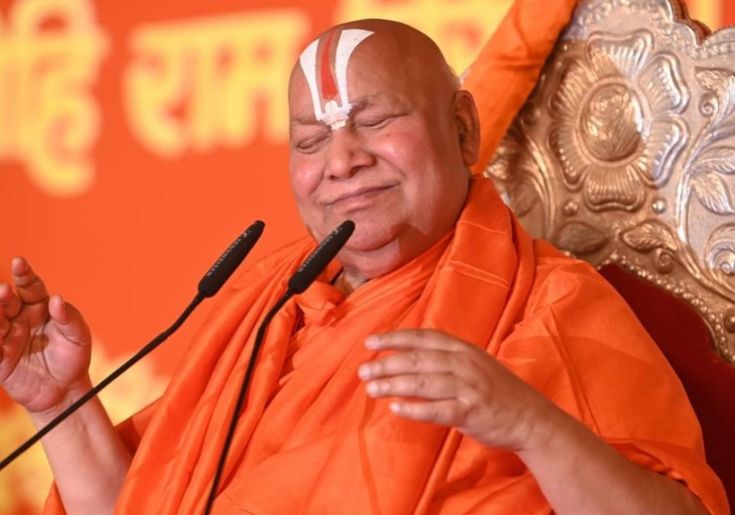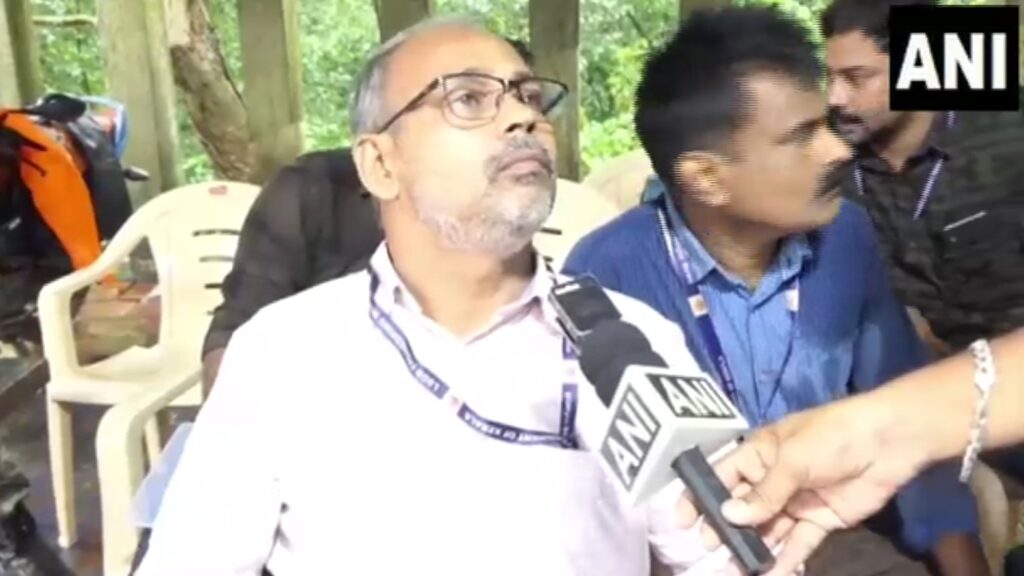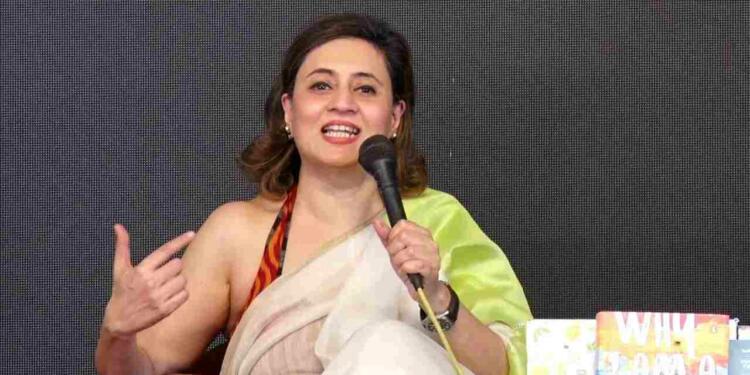What General Upendra Dwivedi’s visit to Chitrakoot reveals about faith, patriotism, and national sentiment
Indian Army Chief General Upendra Dwivedi, accompanied by his wife, made a significant yet non-political visit to the Tulsi Peeth Ashram in Chitrakoot, Madhya Pradesh. The visit, part spiritual and part social, gained unexpected national traction after a symbolic remark by Jagadguru Rambhadracharya, a revered Hindu spiritual leader and head of the Tulsi Peeth.
During the spiritual interaction, the Jagadguru gave General Dwivedi Ram Mantra Diksha, invoking the ancient Ramayana moment where Maa Sita gives Hanuman a mantra before his victorious journey to Lanka. However, it was what followed that caught public imagination — when asked about offering guru dakshina (a traditional gesture of gratitude), the Jagadguru replied with a light-hearted yet nationally resonant request:
“I don’t want jewels or clothes. I want PoK (Pakistan-occupied Kashmir) as my dakshina.”
🚨 Jagadguru Rambhadracharya to Army Chief General Upendra Dwivedi: "I gave him Ram Mantra Diksha, like Hanuman got from Maa Sita before conquering Lanka."
— Megh Updates 🚨™ (@MeghUpdates) May 29, 2025
"My Dakshina? Bring back PoK." 🇮🇳🔥 pic.twitter.com/EdJNclXxhV
The remark, though symbolic and spiritual in nature, has sparked widespread social media discussions, patriotic sentiment, and media buzz, intertwining faith, national pride, and geopolitics.
“PoK as Dakshina”: A Symbolic Remark With National Resonance
Jagadguru Rambhadracharya’s comment was delivered with humor and reverence, but the symbolism was powerful. In Hindu tradition, guru dakshina is considered sacred — a voluntary offering given to a teacher or spiritual master. By requesting PoK as dakshina, the Jagadguru wasn’t making a military demand, but rather articulating a wider cultural and national aspiration that has long existed in Indian public discourse: the return of Pakistan-occupied Kashmir.
He directly compared the Ram Mantra given to General Dwivedi with the one Hanuman received from Sita, implying a hope that India’s armed forces could similarly reclaim what is seen by many as a rightful part of India. This allegorical narrative rooted in the Ramayana resonated with the Indian public, especially within segments that combine spiritual heritage with nationalistic fervor. The video of the exchange quickly went viral, evoking reactions ranging from patriotic enthusiasm to amused approval, all while highlighting how cultural narratives continue to shape political symbolism in India.
Importantly, the Indian Army has not made any official statement linking the visit or the remark to military policy. The Government of India’s stance on PoK as an integral part of the country remains unchanged. However, the interaction does underscore how spiritual leaders often become informal voices reflecting public sentiment on sensitive geopolitical issues.
Spiritual Engagement Meets Soft Power and National Identity
Beyond the symbolic comment, the visit carried broader significance. General Dwivedi and his wife were welcomed with traditional honours and participated in religious rituals and social welfare inaugurations, including opening a medical facility within the ashram’s premises. This type of engagement reflects the Indian Army’s growing outreach to cultural and spiritual institutions, which are seen as part of the nation’s soft power ecosystem.
Jagadguru Rambhadracharya, known for his scholarly contributions to Hindu philosophy, Sanskrit literature, and social welfare, often blends spiritual teachings with commentary on national issues. His remark connects ancient epics like the Ramayana with modern patriotic aspirations, appealing to an audience that views India’s territorial unity as both a civilizational duty and political right. The larger takeaway from the event is the interplay between spiritual authority and national sentiment. While no official change in military posture was declared, the symbolism surrounding PoK remains a powerful emotional and ideological touchstone in India’s public psyche, especially when voiced by influential figures in religious life.





















